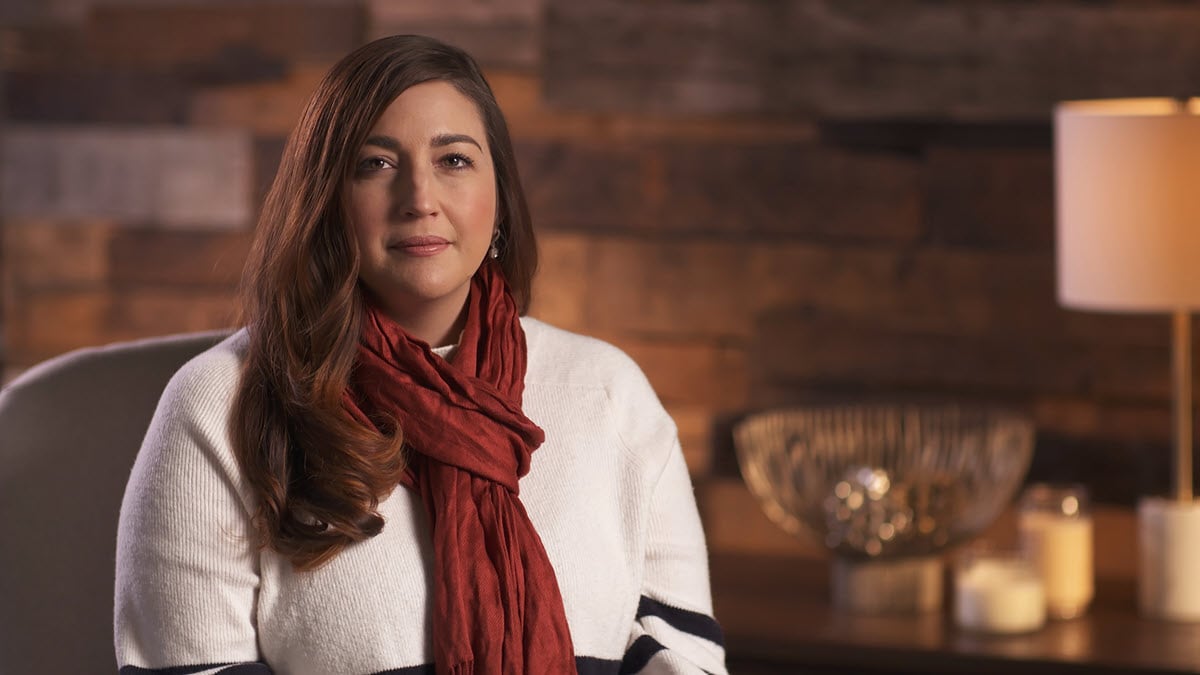Key points
Kristi, a tuberculosis (TB) survivor, describes her surprise when she finds out that the cause of her eye pain was TB disease. She never knew that TB could be anywhere in the body.

Kristi's story
Kristi was first diagnosed with inactive TB, also called latent TB infection, during a health exam after serving as a Peace Corps volunteer.
TB germs can live in the body without making you sick. This is called inactive TB, or latent TB infection. People with inactive TB are infected with TB germs, but they do not have active TB disease. They do not feel sick, do not have any symptoms of TB disease, and cannot spread TB to others.
Without treatment, people with inactive TB can develop active TB disease at any time and become sick. People with active TB disease may also be able to spread the germs to people they spend time with every day.
She didn't think too much about her inactive TB diagnosis and soon began adjusting to her life back in the United States. A couple of years later, she began having really bad pain in one of her eyes.
She went to her eye doctor, who told her she had uveitis, which is an internal swelling of the eye. After some follow-up blood tests, Kristi's eye infection was diagnosed as TB uveitis. Although Kristi was familiar with TB, she never knew that it could be anywhere in the body, not just the lungs.
TB usually affects the lungs. TB can also affect other parts of the body, such as the brain, the kidneys, or the spine. TB can also affect multiple parts of the body at the same time. For example, TB can affect both the lungs and lymph nodes. In Kristi's case, it affected her eye.
Treatment
Kristi had several concerns when she was diagnosed with active TB disease. She didn't know how long her treatment would take, how it was going to affect her life, and what the long-term side effects of her treatment would be.
One of the hardest parts of her experience was the side effects from her TB medications.
"I never had traditional symptoms of tuberculosis. I didn't have a fever. I didn't have a cough, I didn't have any issues with my lungs, and so I felt fine. But I didn't feel good when I took the medication. So it was like waking up every day to take medicine that I knew made me sick, even though I felt fine," says Kristi.
A nurse from the local health department helped Kristi during her TB treatment. The nurse met regularly with Kristi to administer her medications and answer any questions she had. “He was very flexible. He made my schedule work for him, it wasn’t the other way around, so I do really appreciate his role in my TB treatment,” says Kristi.
Kristi's message
"The advice that I would give somebody that had tuberculosis, or that was currently diagnosed with tuberculosis is that you're going to get through the treatment. You're going to be okay. I think that it's scary because we don't know how long it's going to be, or what the treatment is going to be, and what are the side effects. But eventually they do end. And eventually the treatment does end. And this is just a small part of your life," says Kristi.
Now that she has completed her TB treatment, Kristi is working to raise awareness about TB and help support others that have been recently diagnosed and patients going through treatment. She is an active member of a TB survivor network, We Are TB.
